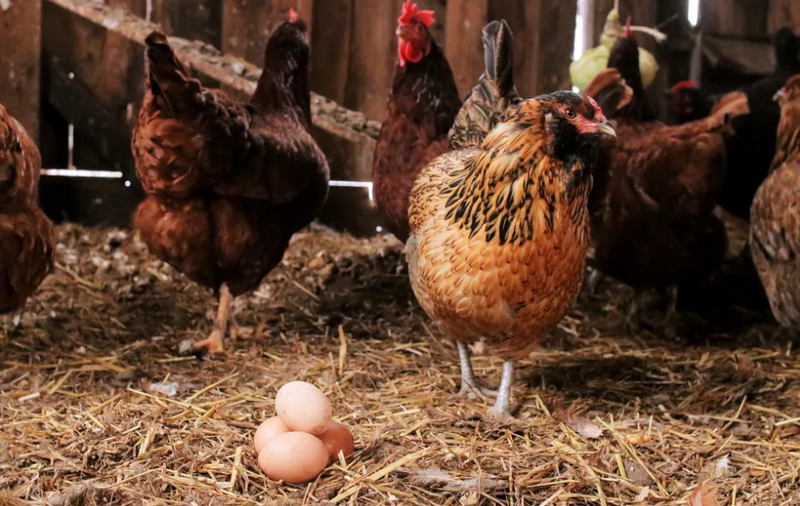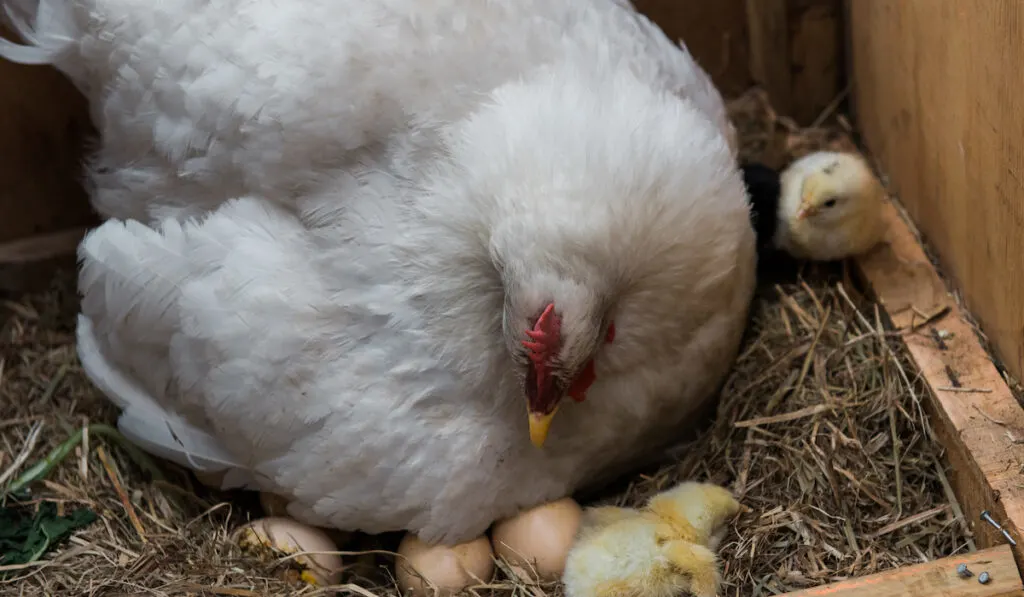Alright, folks, let’s dive into a topic that’s been buzzing around the coop for ages. Do hens produce eggs without a rooster? If you’ve ever wondered how this whole egg-laying thing works, you’re in the right place. This ain’t just a quick answer; we’re breaking it down step by step so you can understand the science, the biology, and everything in between. Whether you’re raising chickens for fun or looking to start your own backyard farm, this guide’s got you covered. So buckle up, grab a cup of coffee, and let’s crack this mystery wide open.
Now, before we get too deep into the nitty-gritty, let’s clarify something. If you’ve ever thought that a rooster is essential for hens to lay eggs, well, you’re about to get an education. Spoiler alert: hens can totally lay eggs without a rooster. But don’t worry, we’ll explain how and why in just a sec. Stick around because this is gonna be one egg-cellent ride.
One more thing before we dive in—this guide isn’t just for beginners. Even if you’ve been raising chickens for years, there’s always something new to learn. From the biology of egg production to the differences between fertilized and unfertilized eggs, we’ve got all the details you need. So, are you ready to learn the truth about hens and their egg-laying abilities? Let’s go!
Understanding the Basics: Do Hens Produce Eggs Without a Rooster?
Let’s start with the basics. The short answer is yes, hens can and will lay eggs without a rooster. In fact, most backyard chickens lay eggs regularly without any rooster around. But here’s the kicker: these eggs won’t be fertilized. That means they’re not gonna hatch into baby chicks. So, what’s the deal? Let’s break it down.
Hens have a natural biological cycle that triggers egg production. This cycle is influenced by factors like daylight, age, and overall health. A hen’s reproductive system is designed to produce eggs whether there’s a rooster around or not. Think of it like a monthly cycle for chickens—except instead of periods, they lay eggs. Pretty cool, right?
Now, here’s where things get interesting. If you’re looking to hatch chicks, you’ll need a rooster to fertilize the eggs. But if you’re just looking for fresh eggs to eat, a rooster isn’t necessary. Most people who raise backyard chickens don’t even have a rooster because, let’s be real, roosters can be a bit noisy and sometimes aggressive. But more on that later.
How Do Hens Lay Eggs Without a Rooster?
Alright, let’s get scientific for a moment. A hen’s reproductive system is pretty fascinating. Every hen is born with thousands of tiny egg cells in her ovaries. As she matures, these cells develop into yolks. When the yolk reaches a certain size, it’s released into the oviduct, where the rest of the egg forms.
Here’s the kicker: the formation of the egg doesn’t require a rooster. The yolk travels through the oviduct, where layers of albumen (the egg white), membranes, and the shell are added. This entire process takes about 24-26 hours, and voilà—you’ve got an egg!
Now, if a rooster is around, things can get a little different. When a rooster mates with a hen, his sperm can fertilize the egg as it forms. But without a rooster, the egg simply continues its journey through the oviduct unfertilized. It’s like nature’s way of saying, “Hey, you can still do your thing even if Mr. Right isn’t around.”
Factors That Influence Egg Production
While hens can lay eggs without a rooster, there are several factors that can influence how often they lay. Here’s a quick rundown:
- Daylight: Hens need about 12-14 hours of daylight to lay eggs consistently. If you live in an area with shorter days, you might notice a dip in egg production during the winter months.
- Age: Younger hens (pullets) tend to lay more frequently than older hens. As hens age, their egg production may slow down.
- Health: A hen’s diet, stress levels, and overall health can affect her egg-laying ability. Make sure your chickens are getting enough nutrients and living in a comfortable environment.
- Breed: Some chicken breeds are better egg layers than others. For example, White Leghorns are known for their high egg production, while other breeds might lay less frequently.
Do All Hens Lay Eggs Without a Rooster?
Not all hens are created equal when it comes to egg production. While most hens can lay eggs without a rooster, there are some exceptions. For example, some hens may stop laying altogether if they’re stressed, sick, or molting. Others might lay fewer eggs as they age.
It’s also worth noting that not all hens are good egg layers. Some breeds are more focused on meat production or breeding, so their egg-laying abilities might not be as strong. If you’re looking for a steady supply of eggs, it’s important to choose the right breed for your needs.
Top Egg-Laying Breeds
If you’re looking for hens that lay eggs like pros, here are a few breeds to consider:
- White Leghorn: Known for their high egg production, White Leghorns can lay up to 300 eggs per year.
- Golden Comet: These chickens are another top choice for egg production, laying around 250-300 eggs annually.
- Ameraucana: Not only are these hens great layers, but they also lay beautiful blue or green eggs.
- Plymouth Rock: A dual-purpose breed, Plymouth Rocks lay around 200-280 eggs per year while also being good for meat production.
What Happens If You Add a Rooster to the Mix?
Adding a rooster to your flock changes the game. While hens can still lay eggs without a rooster, the presence of a rooster can lead to fertilized eggs. This means that if you collect an egg from a hen who’s mated with a rooster, there’s a chance it could develop into a chick if incubated properly.
But here’s the thing: fertilized eggs are perfectly safe to eat. The fertilization process doesn’t affect the taste or nutritional value of the egg. In fact, many people prefer fertilized eggs because they believe they’re more nutritious. However, if you’re not planning to hatch chicks, you might want to think twice about adding a rooster to your flock.
Pros and Cons of Keeping a Rooster
Roosters can be both a blessing and a curse. Here’s a quick breakdown of the pros and cons:
- Pros: Roosters can protect the flock from predators, add genetic diversity, and help with fertilization if you’re looking to hatch chicks.
- Cons: Roosters can be noisy, aggressive, and territorial. They might also cause stress for your hens if they’re too pushy.
How to Tell if an Egg Is Fertilized
So, how do you know if an egg is fertilized? It’s actually pretty simple. If you crack open a fertilized egg, you’ll see a small white spot called the germinal disc. This spot is where the embryo would develop if the egg were incubated. In an unfertilized egg, this spot is much smaller and less defined.
Another way to tell is by candling the egg. Candling involves shining a bright light through the egg to see what’s inside. If the egg is fertilized and has been incubated for a few days, you might see tiny blood vessels or even the outline of a developing chick.
Can You Eat Fertilized Eggs?
Absolutely! Fertilized eggs are perfectly safe to eat. In fact, many people believe they’re more nutritious than unfertilized eggs. The key is to collect the eggs regularly and refrigerate them. If you don’t plan to incubate the eggs, there’s no difference between fertilized and unfertilized eggs when it comes to taste or nutrition.
Common Myths About Hens and Egg Production
There are a lot of myths floating around about hens and egg production. Let’s debunk a few of them:
- Myth #1: Hens need a rooster to lay eggs. Fact: Hens can lay eggs without a rooster, but the eggs won’t be fertilized.
- Myth #2: Fertilized eggs taste different. Fact: Fertilized and unfertilized eggs taste the same unless the egg has started to develop.
- Myth #3: All hens lay eggs daily. Fact: While some hens lay almost every day, others may lay less frequently depending on factors like age, breed, and health.
Why Do People Believe These Myths?
A lot of these myths come from a lack of understanding about chicken biology. People assume that because roosters are necessary for fertilization, they must also be necessary for egg production. But as we’ve learned, that’s not the case. By educating yourself and others, you can help dispel these myths and promote a better understanding of chickens and their amazing abilities.
Tips for Maximizing Egg Production Without a Rooster
If you’re raising hens without a rooster, there are a few things you can do to maximize their egg production:
- Provide Adequate Nutrition: Make sure your hens are getting a balanced diet with plenty of protein, calcium, and other essential nutrients.
- Ensure Proper Lighting: Hens need about 12-14 hours of daylight to lay eggs consistently. If you live in an area with shorter days, consider using artificial lighting in the coop.
- Keep Stress Levels Low: Stress can negatively impact egg production. Make sure your hens have a comfortable, safe environment.
- Monitor Health: Regularly check your hens for signs of illness or injury. A healthy hen is a happy hen—and a happy hen lays more eggs!
Conclusion: Do Hens Produce Eggs Without a Rooster?
There you have it, folks. Hens can absolutely produce eggs without a rooster. Whether you’re raising chickens for eggs, meat, or companionship, understanding their biology and behavior is key to success. By providing your hens with the right environment, nutrition, and care, you can ensure a steady supply of fresh eggs for years to come.
Now that you know the truth about hens and egg production, it’s time to take action. Whether you’re starting your own backyard flock or just curious about chickens, this guide has given you all the information you need to make informed decisions. So go ahead, share this article with your friends, leave a comment, and let us know what you think. And if you’re looking for more chicken-related content, be sure to check out our other articles. Happy farming!
Table of Contents
- Understanding the Basics: Do Hens Produce Eggs Without a Rooster?
- How Do Hens Lay Eggs Without a Rooster?
- Factors That Influence Egg Production
- Do All Hens Lay Eggs Without a Rooster?
- Top Egg-Laying Breeds
- What Happens If You Add a Rooster to the Mix?
- Pros and Cons of Keeping a Rooster
- How to Tell if an Egg Is Fertilized
- Can You Eat Fertilized Eggs?
- Common Myths About Hens and Egg Production
- Why Do People Believe These Myths?
- Tips for Maximizing Egg Production Without a Rooster


